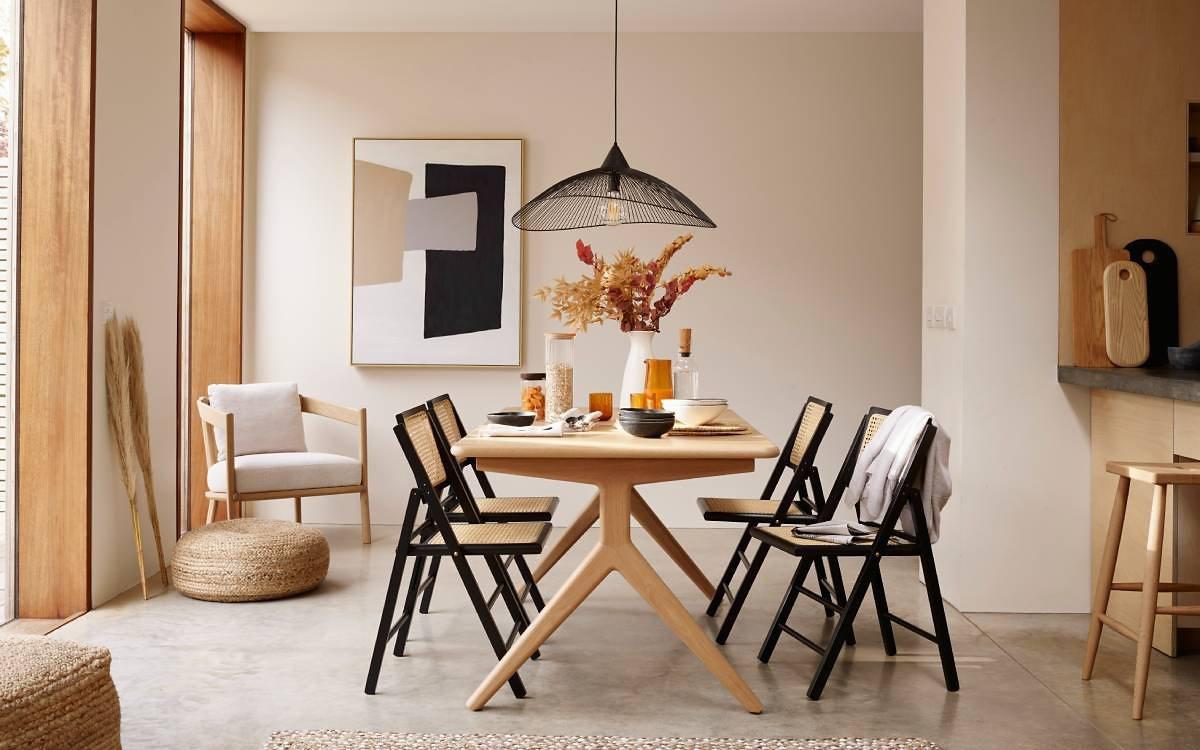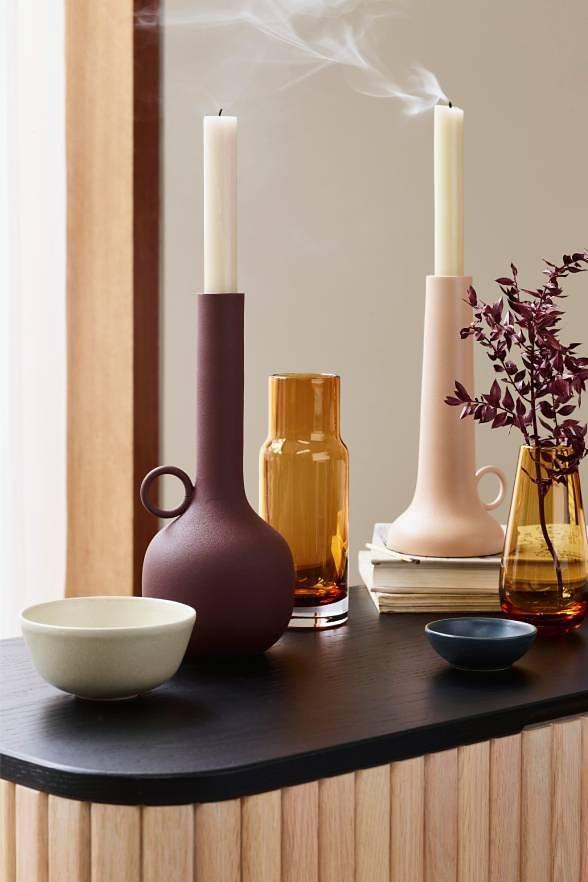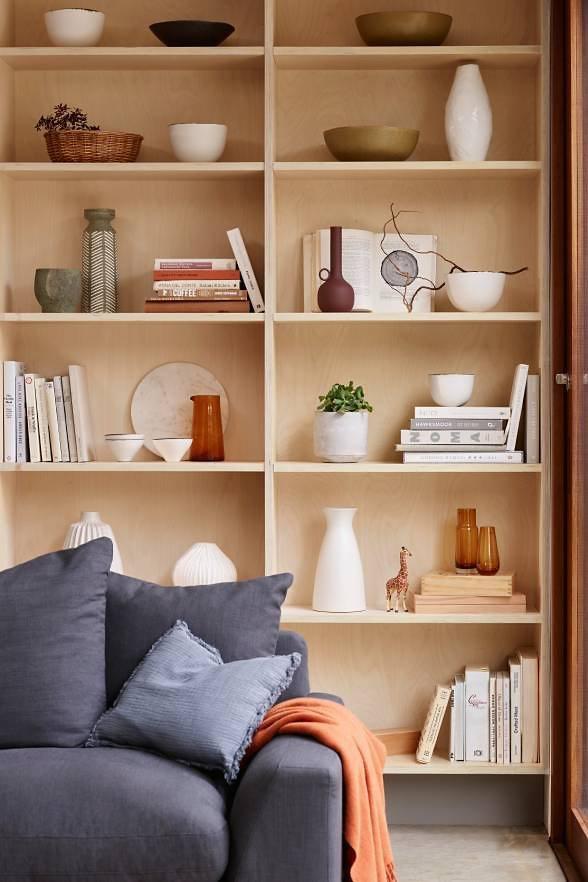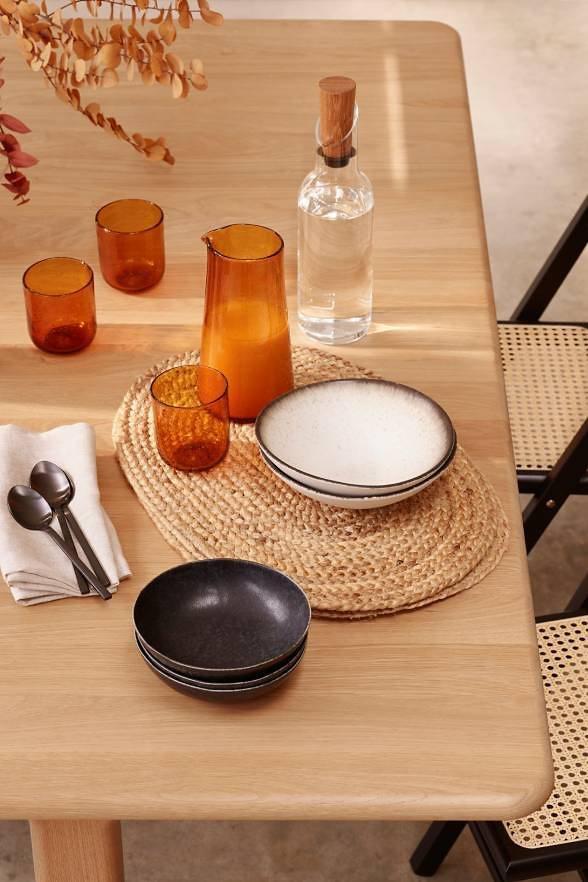John Lewis Hiko Large Ceiling Light
£225.00£180.00

The hybrid style is big news thanks to elegantly simple looks that work in harmony with our lives
As we crave a functional yet restful home, Japandi is the perfect look for now – a considered, calming fusion of Japanese and Scandi design styles that brings out the best elements of each. While the Japanese emphasis on minimalism makes it too sleek for some, Scandi‘s perchant for layers and cosiness (or creating hygge) brings the balance.
‘Japanese and Scandi styles have so much in common,’ explains Fionnuala Johnston, Partner & Senior Designer, Home Design Studio. ‘Both are big on simplicity and an appreciation of function and use a natural palette and texture to create a calming environment. As a result, they blend together so well.’
In Scandinavian countries, people are very in touch with nature. ‘As a result, their design is very natural and beautiful while remaining functional,’ says Fionnuala. ‘In Japanese style, there are similarities, but they are used differently – think of smaller spaces with simple, clean lines that are uncluttered. There's a need for homes to function really well with a sense of fluidity.’
'As a style, Japandi is all about creating a clutter-free and calm space to relax in, with minimal styling essential,’ agrees Bethan Harwood, Partner & Home Design Stylist (@JL_bethan).

The Japandi palette is soft and muted – think stone, beige and taupe – but that doesn't mean it lacks interest. ‘Scandi-soft shades, such as dove grey, blush pink or inky blue, are a great way to add depth to a minimalist Japanese look,’ says Bethan. ‘They can be used as neutral tones and add vibrancy to natural textures to create a warm feel in your space.’

‘Japandi focuses on natural textures and a sense of craftsmanship,’ says Bethan. ‘I would always opt for lighter woods to give an airy feel to your space, but there’s no need to worry about mixing different finishes – just make sure they are within the same tonal range. This way the woods will always complement each other.’
As with creating any style, balance is key. When looking at the room as a whole, make sure you have highlights, mid tones and darker finishes. ‘This will ensure the room is welcoming and somewhere you want to spend time,’ adds Bethan. It could be as simple as choosing a grey seat pad on a pale wood dining chair or mixing black metal legs with a wooden table top for Japandi-style dining.

‘Japandi is about how you combine the functional with the beautiful,’ says Fionnuala. Mix the comfort of Scandinavian accessories – the tactile textures of fabrics, the cosiness and the warmth of throws – with more utilitarian Japanense elements, like striking vases and artwork. Both Japanese and Scandi styles rely on natural elements, so make sure your Japandi scheme also includes a few plants.
‘If you’re looking for a good place to start, try working backwards and placing all of your objects onto a surface, then taking away elements one by one – this will leave you with considered choices and just the accessories that you really love on show,‘ says Bethan.
EDITOR’S TOP PICS
